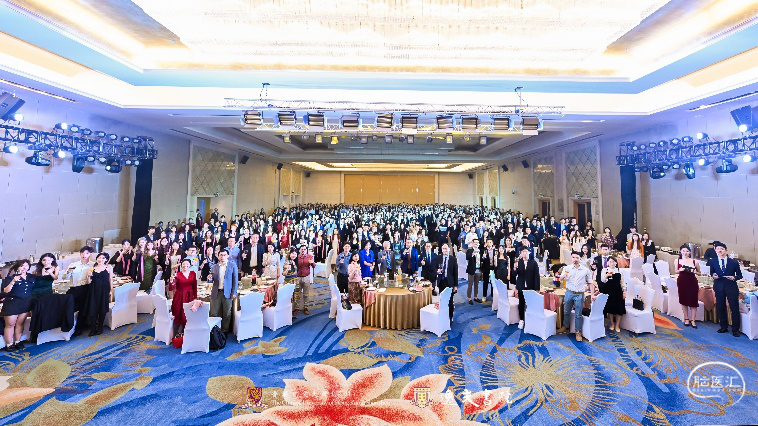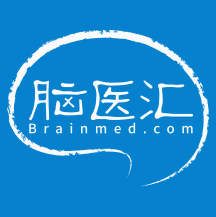团队负责人介绍
王任直 教授
主任医师,教授,博士生导师,北京协和医院神经外科教研室主任、北京协和医学院再生医学系副主任,香港中文大学(深圳)医学院顾问
从事神经外科临床、科研和教学工作四十年,善于处理神经外科各种疑难复杂问题,尤其擅长于垂体腺瘤、脑胶质瘤、脑血管病、颅咽管瘤、颅底肿瘤、脑干肿瘤等疾病的诊断和治疗
作为首席科学家和课题负责人,承担国家863课题三项;国家自然科学基金委重大课题一项,面上课题多项,国家科技部重大研究前期专项一项,省部级课题多项
作为第一作者或通讯作者,发表中、英文论著200余篇,获得国内外专利八项,主编或主译各类医学论著及医学类教科书18部,组织编写各类疾病共识或指南二十余部。曾获国家科技进步一等奖一项(参加),国家发明二等奖一项,中华医学科技进步一等奖一项,三等奖一项,国家教委科技进步二等奖三项,北京市科技进步三等奖一项
张波 教授
博士生导师,国务院政府特殊津贴获得者,深圳地方级领军人才,深圳市卫生健康菁英人次(学科带头人)
担任中华医学会神经外科分会神经创伤学组委员,中国医师协会颅底创伤专业委员会委员,中国抗癌协会脑胶质瘤专业委员会委员,欧美同学会医师协会脑血管病分会副主任委员,中国垂体腺瘤协作组专家委员会委员,中国神经外科重症管理协作组委员会委员,中国卒中学会医疗质量管理与促进分会委员会委员,广东省医学会神经外科分会常委,广东省医学会神经肿瘤学分会常委,深圳市医学会神经外科分会主任委员,深圳市医师协会神经外科医师分会副会长
先后主持国家自然科学基金4项、国家863计划、国家科技支撑计划子课题3项,省市课题10余项,获省部级科技进步一等奖1项、二等奖5项。在Molecular cancer,Int J Cancer等杂志发表相关论著40余篇,单篇最高影响因子27.401,总影响因子大于150
培养博士、硕士研究生40余人,国际神经外科权威著作《尤曼斯神经外科学》副主译,参编《颅底外科学》、《神经外科手术学》等医学著作6部,参与编写临床指南3部
从事临床工作27年,对神经外科疾病的诊断、治疗有扎实的功底,擅长显微和内镜技术,每年完成神经外科四级手术200余例
在应用神经内镜结合神经导航及显微技术治疗神经肿瘤方面取得了突出的成绩,总结出了一整套优于传统神经外科技术的现代微创精准治疗方案
建立了以“一个中心、两个层面、三个环节”为特色的恶性胶质瘤新型诊疗模式,组建了高水平的脑胶质瘤和垂体腺瘤多学科综合治疗与研究平台
团队导师介绍
万翔 教授
计算机系博士,深圳市大数据研究院高级研究科学家,香港中文大学(深圳)客座副教授,任广东省生物医学工程学会智能医学影像分会副主任委员,医疗健康大数据中心(龙岗区人民医院-深圳市大数据研究院)主任,广东省大数据计算基础理论与方法重点实验室核心成员等
主要从事多类型医疗大数据的整合分析和数据挖掘,在国际顶级期刊及会议上发表了90多篇论文,近5年文章引用量超过7000次,入选2021和2022全球前2%顶尖科学家榜单及爱思唯尔2021中国高被引学者
目前任职深圳市大数据研究院大数据智能应用技术研究所医疗大数据实验室主任,团队成员60余人,汇聚了一批具有丰富科研经验的国际一流人才,包括研究科学家、博士后、工程师、兼职教授及博士研究生
团队重点发展方向是医疗数据智能化分析,借助人工智能和机器学习,研发文本、影像及语音识别技术,整合电子病历、医学影像的智能识别、医学图像的分割、生物医学及生物信息数据、开发智能模型辅助复杂疾病的诊断治疗以及残疾人的无障碍交流,推进医疗大数据的应用研究工作
已与国家卫健委、深圳卫健委、三甲医院及医疗健康企业等多家机构展开合作。仅2022年团队获得课题资助达13项,包括基于CT影像的肺结节实性成分密度细粒度智能分析、基于CT影像血管及斑块分割辅助的冠心病早期诊断及治疗建议、关于线索中异步多模态融合与小样本识别问题的研究等
刘宏斌 教授
中国科学院自动化研究所研究员、博导,中科院香港创新院人工智能与机器人创新中心执行副主任,多模态人工智能系统全国重点实验室-智能微创医疗技术团队负责人
2020年入选中科院高层次人才计划,2021年入选国家高层次人才长期计划,同年获得某部委重点人才基金。刘宏斌研究员归国前任英国伦敦国王学院医疗机器人学教授,触觉医疗机器人实验室主任。2020年全职加入中国科学院自动化所。为解决触感能力缺失这一当前制约微创手术效率及安全性的关键性难题,以实现手术微创化,数字化,智能化,标准化为目标,长期致力于研发经狭窄腔道的柔性微创机器人技术。所带领的实验室是国际上率先开展具有触觉感知的柔性手术机器人研发的团队之一
刘宏斌教授在微创柔性机器人技术,精准触觉传感技术,多模态信息融合与控制相关的理论研究等方面取得了业内公认的开创性成果。2022年,其团队研发的微创柔性神经外科手术机器人MicroNeuro,荣获首届“中银香港科技创新奖”,是人工智能与机器人领域的唯一获奖者。这一成果被评委会评价为“使香港成为机器人神经外科研究领域的国际领导者,并彰显了香港在世界医疗机器人研究和神经外科临床研究领域的重要角色”。其团队研发的微创手术器械复杂微曲面分布式触觉感知ESSENC技术、在理论与技术实践上处于世界领先地位。共发表国际机器人顶尖期刊与会议超过130余篇,H影响因子39。发明专利申请、授权40余项。主持各类科研项目经费累计过亿元
张庆华 教授
医学博士,二级主任医师,博士生导师,享受“国务院特殊津贴”、国家“百千万人才”、深圳市地方级领军人才深圳地方级领军人才,深圳市卫生健康菁英人次(学科带头人)
担任中华医学会神经外科青年委员会委员,欧美同学会颅底分会全国常委,中国垂体腺瘤协作组专家委员会委员,广东省医学会神经外科分会委员、省显微外科学分会副主任委员,深圳市医学会神经外科分会主任委员,深圳市医师协会神经外科医师分会副会长兼肿瘤学组组长
先后主持国家自然科学基金2项,省市课题10余项,科研经费累积600万余,发表论文70余篇,其中SCI文章10余篇;独立培养博士1名,专业型硕士研究生13名
从事神经外科疾病的诊疗工作27年,对垂体瘤、颅咽管瘤、颅底脑膜瘤,脑胶质瘤及脑干肿瘤等颅底肿瘤的显微外科及神经内镜治疗以及脊髓肿瘤、脑血管病的显微微创手术、脑深部病灶机器人手术等具有丰富的临床经验
目前致力于推动人工智能、机器人等高科技手段在神经外科临床手术中的应用研究,该临床应用研究获得深圳市科创委可持续发展专项计划资助(400万元)
宋鲁平 教授
神经病学医学博士、心理学博士后、主任医师、教授、博士研究生
现华中科技大学协和深圳医院康复医学科学科带头人,科主任;原中国康复研究中心神经康复二科主任。曾独立培养硕士研究生11名,博士研究生1名
主持国家科技重点研发课题、国家自然科学基金等国家级和省部级课题20余项,共发表SCI论文20余篇,国内核心期刊论文70余篇。获国家级科技二等奖1项,以第一和通讯作者在国内牵头撰写三部“康复中国专家共识》。副主编《帕金森病康复指南》和《言语康复指南》,主编和主译学术专著六部。荣获2020年度中国康复医学会“优秀康复医师”称号
现任中华医学会物理医学与康复学分会康复教育专业学组副组长、深圳康复医学会语言功能障碍康复专业委员会主任委员
近年来,团队主要致力于神经系统疾病数据库的建设和应用,开发了基于神经系统的智能化诊疗系统、基于规则库的临床辅助决策系统、 基于医学图像后处理及人工智能技术的个性化诊疗系统、基于医学图像后处理及人工智能技术的智能化神经导航系统。团队在AI、图像重建和配准、三维视图、图像渲染方面具有丰富的经验,长期致力于推动AI等智能技术在神经外科的应用达十余年,通过与多家大学和科研院所以及公司合作,在这方面积累了丰富的经验
目前已经完成以下工作:A. 开发完成“鞍区肿瘤智能化辅助诊疗决策系统”的研发,目前已经在五百余家基层医院试用,取得很好的效果;B. 建立了神经系统疾病数据库:如高血压脑出血数据库,目前已经积累一万余例病人资料,五万余例次CT扫描数据;垂体腺瘤数据库,已有四万五千余例病人资料;C. 初步完成高血压脑出血智能化辅助诊疗模型,准备在医院完成进一步临床验证;D. 已经完成脑组织分割和重建模型工作;E. 与合作伙伴一起研发了具有完全自主知识产权,有别于国内、外核心技术的“神经导航”工作;F. 神经系统手术机器人及康复机器人的研发;G. 已经申请专利三十余项,著作权证书2项。所有这些,为本项目工作积累了丰富的经验,奠定了深厚的基础
培养单位简介
硕士、博士及博士后项目介绍
1. 生物科学哲学硕士-博士项目
生物科学硕士-博士项目旨在教育和培养具有坚实学科基础的生物科学研究生。在所学领域具有专业知识。未来会成为大学、研究机构和工业领域的领先学者和研究者。涵盖的研究领域包括:生物化学、细胞生物学、癌症生物学、免疫学、神经生物学、药理学、遗传学、人类遗传学、生物物理学、发育生物学和/或计算和系统。具有硕士学位的申请人应申请攻读博士学位,而具有学士学位的申请人,可以申请攻读硕士学位或者直接申请博士学位。申请人应具有生物科学、化学和/或相关学科。
2. 生物医学工程硕士-博士项目
生物医学工程是一项跨学科专业,将工程学原理和设计概念应用于生物学和医学上,以期达到在医疗领域中应用的目的,例如疾病诊断、监测和治疗等。生物医学工程课程的主要任务是培养在生物学、医学和工程领域具有跨学科专业知识的科学家,并通过分子生物学、生物化学、生物力学、信息学、纳米技术、仪器制造和材料工程方面的知识指导他们进行研究工作。通过该课程精心设计的学习计划,学生将获得良好的教育,并可在生物医学和工程学领域处于领导地位。
香港中文大学(深圳)的生物医学工程课程致力于组建一支世界一流的师资队伍,在重要生物医学领域进行前沿研究。凭借香港中文大学(深圳)在材料工程、人工智能、大数据分析和机器人技术方面的现有优势,该课程专注在生物材料和纳米技术、生物医学成像和信号处理、生物传感器和生物仪器、生物医学机器人技术、以及生物医学信息学的发展。在跨学科的学术环境中,学生可与有多学科专业背景的教授及临床医生互动和学习,以获得对人类医疗保健和疾病治疗的前瞻性见解,并转化他们的创新思想或前沿研究促进产业和临床医学的发展,最终让疾病患者受益。该课程为跨学科学习、创造性思维、实用的问题解决能力以及对新兴生物技术及其未来发展的敏锐感知奠定了坚实的基础。
3. 临床神经科学和康复科学博士后项目
二十一世纪是脑科学世纪,经过二十几年的发展已经充分证实了这一点。各发达国家纷纷出台各国的脑研究计划,希望在脑结构、脑网络、脑认知、脑疾病、脑机接口以及类脑研究等方面取得突破性进展。在整个脑计划研究团队中,神经外科和康复医学可以发挥重要的作用。
研究方向
神经系统疾病智能化数据库(中台)的设计、建立、资料收集、数据分析和应用
多组学对神经系统疾病发病机制的研究
脑肿瘤诊断和治疗靶点的研发
人工智能技术在神经系统疾病诊断和治疗中的作用
医学图像后处理技术在脑认知中的应用
脑肿瘤智能化辅助诊疗决策系统的建立
脑血管病智能化辅助诊疗决策系统的建立
透明脑+神经导航+机器人研发和利用
智能化康复设备和机器人研发和利用
招生类型和要求
招生类型:
1. 硕士、博士项目(对于成绩优秀者可以提供半额或者全额奖学金)
2. 博士后项目
申请途径
本次招收2023年8月秋季入学报名截止日期是2023年7月15日。
请先将中文简历、代表作发至团队招生助理邮箱:shiqingleicmu@163.com(邮件主题:博士申请-姓名-院校),同时在医学院官网网站上完成线上资料提交(https://pgapply.cuhk.edu.cn/)。秋季入学的同学如无英语成绩,可在申请时暂时空项,保证入学时提供合格的英语成绩即可,择优录取,如有任何问题欢迎电话咨询。
联系方式
博士生项目主页:https://pgapply.cuhk.edu.cn/
学校主页:https://www.cuhk.edu.cn/zh-hans
联系人:石博士
电话:18910688773
邮箱:shiqingleicmu@163.com
The CUHK-Shenzhen School of Medicine is recruiting master's and doctoral students, as well as postdoctoral researchers (2023 Fall)
Introduction of the Team Leaders
Professor Wang Renzhi, Chief Physician, Professor, Doctoral Supervisor, Director of the Department of Neurosurgery at Peking Union Medical College Hospital, Deputy Director of the Department of Regenerative Medicine at Peking Union Medical College, and Consultant of the School of Medicine at CUHK-SZ. With forty years of experience in clinical, scientific research, and teaching work in neurosurgery, Professor Wang specializes in the diagnosis and treatment of various complex and challenging neurosurgical conditions. He is particularly skilled in the diagnosis and treatment of pituitary adenomas, brain gliomas, cerebrovascular diseases, craniopharyngiomas, skull base tumors, brainstem tumors, and other diseases. As the chief scientist and project leader, he has undertaken three projects funded by the National 863 Program, one major project funded by the National Natural Science Foundation of China, several general projects funded by the National Natural Science Foundation, one pre-research project of major importance funded by the Ministry of Science and Technology, and multiple provincial and ministerial-level projects. He has published over 200 research papers in both Chinese and English, obtained eight domestic and international patents, edited or translated 18 medical books and textbooks, and organized the compilation of over 20 consensus or guideline documents related to various diseases. He has been awarded the First Prize of National Scientific and Technological Progress (as a participant), the Second Prize of National Invention, the First Prize of Chinese Medical Association Scientific and Technological Progress, the Third Prize of Chinese Medical Association Scientific and Technological Progress, the Second Prize of the National Education Commission Scientific and Technological Progress, and the Third Prize of Beijing Municipal Science and Technology Progress.
Professor Zhang Bo, Doctoral Supervisor, recipient of the special allowance from the State Council of China, leading talent in Shenzhen, and elite personnel in the field of health in Shenzhen. He serves as a member of the Neurotrauma Group of the Neurosurgery Branch of the Chinese Medical Association, a member of the Skull Base Trauma Professional Committee of the Chinese Medical Doctors Association, a member of the Glioma Professional Committee of the China Anti-Cancer Association, Vice Chairman of the Cerebrovascular Disease Branch of the Overseas Chinese Medical Association, a member of the Expert Committee of the Chinese Pituitary Tumor Collaboration Group, a member of the Committee of the Chinese Neurosurgical Critical Care Collaboration Group, a member of the Committee of the Medical Quality Management and Promotion Branch of the Chinese Stroke Society, a standing committee member of the Neurosurgery Branch of the Guangdong Medical Association, a standing committee member of the Neuro-Oncology Branch of the Guangdong Medical Association, Chairman of the Neurosurgery Branch of the Shenzhen Medical Association, and Vice President of the Neurosurgery Physicians Branch of the Shenzhen Medical Doctors Association. He has presided over four projects funded by the National Natural Science Foundation, three sub-projects of the National 863 Program, and more than ten projects at the provincial and municipal levels. He has been awarded one first prize and five second prizes for scientific and technological progress at the provincial and ministerial levels. He has published over 40 relevant papers in journals such as Molecular Cancer and the International Journal of Cancer, with the highest impact factor of 27.401 for a single paper and a total impact factor exceeding 150. He has supervised the training of more than 40 doctoral and master's students. He served as the deputy chief translator of the authoritative international neurosurgery book "Youmans Neurological Surgery" and participated in the compilation of six medical books, including "Skull Base Surgery" and "Neurosurgical Techniques." He has participated in the compilation of three clinical guidelines. With 27 years of clinical experience, he has a solid foundation in the diagnosis and treatment of neurosurgical diseases and is proficient in microscopic and endoscopic techniques. He performs over 200 level-four neurosurgical operations annually. He has achieved remarkable results in the treatment of neurotumors using a combination of neuroendoscopy, neuro-navigation, and microsurgery, and has developed a set of modern minimally invasive precision treatment plans that are superior to traditional neurosurgical techniques. He has established a new diagnostic and therapeutic model for malignant gliomas with the characteristics of "one center, two levels, and three links" and has set up a high-level interdisciplinary treatment and research platform for gliomas and pituitary adenomas.
Introduction to the Training Institution
The School Medicine of the Chinese University of Hong Kong, Shenzhen (CUHK-SZ)was officially established in August 2021. Professor Zheng Zhongxuan, an academician of the Canadian Academy of Health Sciences, a world-renowned expert in cardiac anesthesia, and an expert in anesthesia and perioperative evidence-based medicine research, serves as the founding dean of the medical school. The School of Medicine aims to cultivate outstanding medical innovation talents with an international perspective and humanistic values. Drawing on the international first-class educational foundation and teaching experience of The Chinese University of Hong Kong's Medical School (ranked 29th globally in the recent QS World University Rankings), the School of Medicine at CUHK-SZ fully absorbs advanced educational concepts from medical schools both domestically and internationally. It actively explores a new model of medical education that integrates Shenzhen and Hong Kong, and establishes a talent training system for undergraduate, master's, and doctoral programs. The School of Medicine will leverage the research advantages of the university's three Nobel laureate research institutes (including the Vashel Institute of Computational Biology, the Kobilka Institute of Innovative Drug Discovery, and the Chekhov Precision and Regenerative Medicine Institute) and the Big Data Research Institute in the fields of artificial intelligence, life, and health. It will promote the development of medical technology integration, medical theory integration, and translational medicine, and is committed to creating an international medical system with advanced medical services, high-end medical talent training, and innovative medical research capabilities.
Currently, the CUHK-Shenzhen School of Medicine has two affiliated hospitals: the CUHK-SZ Hospital (formerly Jiahua Hospital, expected to commence trial operation in July 2024) and the Longgang People's Hospital in Shenzhen.
There are five clinical teaching bases: 1) the Sixth People's Hospital of Shanghai, 2) Peking University Shenzhen Hospital, 3) Shenzhen Children's Hospital, 4) Huazhong University of Science and Technology Union Shenzhen Hospital (Nanshan Hospital), and 5) Longgang Maternal and Child Health Hospital.
Master's, Doctoral, and Postdoctoral Programs Introduction
1) Master's-Doctoral Program in Philosophy of Biological Sciences
The Master's-Doctoral Program in Philosophy of Biological Sciences aims to educate and train graduate students with a solid foundation in biological sciences. The program aims to produce leading scholars and researchers in universities, research institutions, and industrial fields. The research areas covered include biochemistry, cell biology, cancer biology, immunology, neurobiology, pharmacology, genetics, human genetics, biophysics, developmental biology, and/or computation and systems. Applicants with a master's degree should apply for a doctoral degree, while applicants with a bachelor's degree can apply for a master's or doctoral degree directly. Applicants should have a background in biological sciences, chemistry, and/or related disciplines.
2 ) Master's-Doctoral Program in Biomedical Engineering
Biomedical engineering is an interdisciplinary field that applies engineering principles and design concepts to biology and medicine to achieve purposes such as disease diagnosis, monitoring, and treatment in the medical field. The main task of the biomedical engineering program is to cultivate scientists with interdisciplinary knowledge in biology, medicine, and engineering and guide them in research work through knowledge in molecular biology, biochemistry, biomechanics, informatics, nanotechnology, instrument manufacturing, and materials engineering. Through a carefully designed curriculum, students will receive a quality education and be at the forefront of biomedical and engineering fields.
3 ) Postdoctoral Program in Clinical Neuroscience and Rehabilitation Sciences
The 21st century is the century of brain science, which has been fully confirmed after more than 20 years of development. Developed countries have introduced various national brain research programs, hoping to make breakthrough progress in brain structure, brain networks, brain cognition, brain diseases, brain-machine interfaces, and neuromorphic research. Among the entire brain research team, neurosurgery and rehabilitation medicine can play important roles.
Research Directions
Design, establishment, data collection, data analysis, and application of intelligent databases (middle platform) for neurological diseases.
Study of the pathogenesis of neurological diseases using multi-omics approaches.
Development of diagnostic and therapeutic targets for brain tumors.
Artificial intelligence technology in the diagnosis and treatment of neurological diseases.
Application of medical image post-processing techniques in brain cognition.
Establishment of an intelligent auxiliary diagnostic and therapeutic decision-making system for brain tumors.
Establishment of an intelligent auxiliary diagnostic and therapeutic decision-making system for cerebrovascular diseases.
Development and utilization of transparent brain, neuro-navigation, and robotics.
Development and utilization of intelligent rehabilitation devices and robotics.
Enrollment Types and Requirements
1) Enrollment Types:
Application Process
The deadline for application for the autumn intake in August 2023 is July 15, 2023.
Please submit your Chinese resume and representative works to the team's recruitment assistant email: shiqingleicmu@163.com (Email subject: Doctoral Application - Name - University), and complete the online data submission on the School of Medicine's official website (https://pgapply.cuhk.edu.cn/). For autumn intake, if you do not have an English test score, you can leave it blank temporarily during the application process, but you need to provide a qualified English score before enrollment. If you have any questions, please feel free to contact us by phone.
Contact Information
PhD Program Homepage: https://pgapply.cuhk.edu.cn/
University Homepage: https://www.cuhk.edu.cn/en
Contact Person: Dr. Shi
Phone: 189 1068 8773
Email: shiqingleicmu@163.com
活动掠影


首届香港中文大学(深圳)脑科学与脑技术高峰论坛

[逸游未尽] 香港研游


声明:脑医汇旗下神外资讯、神介资讯、神内资讯、脑医咨询、AiBrain 所发表内容之知识产权为脑医汇及主办方、原作者等相关权利人所有。




